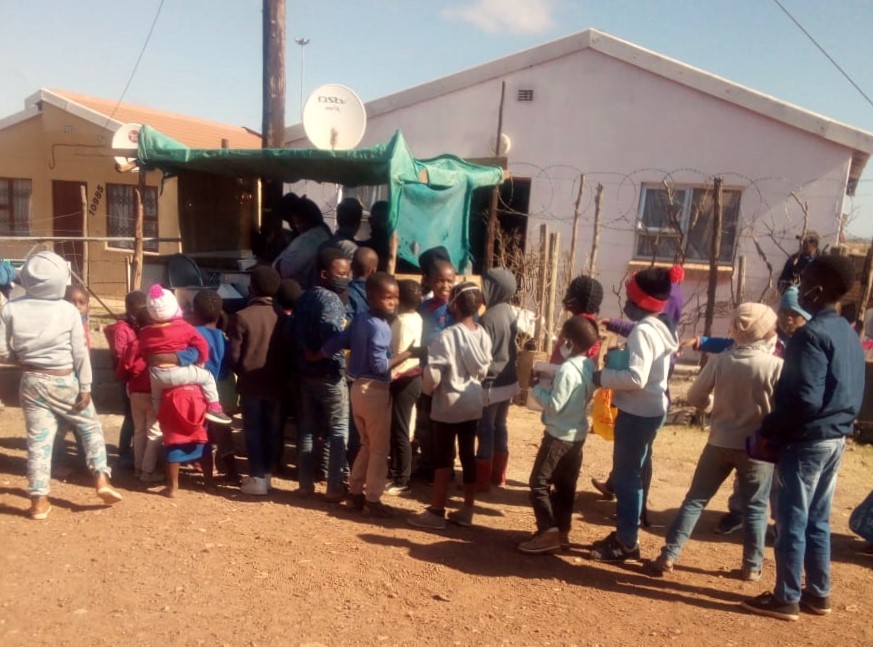By TRISTAN COOKE
On the mantlepiece above the TV sits a soccer trophy; it has found the highest point in Ndombozuko Faxa’s living room. In the kitchen sit two men, their impatience seems to have stemmed from interrupted screen time.
Ndombozuko, who established a soup kitchen two years ago, assertively quells a murmuring house and continues her train of thought: “If the children are not eating well, they may (use) drugs or do some theft so that they can buy and sell food.”
“I have a soccer team (13-16 years old), some of the young ones (children) go to the gym. You see this one?” Faxa gestures toward the trophy, “This is their second one!” She also oversees a female netball team for women 16-19 years old.
“I used to cook every day, now two days a week,” she says, pinning it on a shortage of donations.
Faxa wants to establish a community centre connected to her soup kitchen. This would be for elderly people who need care and for children to have a space to do their work and play sport. And the centre could employ people in a scarce job market.




